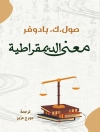This volume explores methods for studying child maltreatment in the context of neighborhoods and communities, given their importance in the lives of families. It discusses the ways in which neighborhoods have changed over time and how this that has impacted parenting in the modern context. It also highlights the ways in which policies have contributed to persistent poverty and inequality, which indirectly impacts child maltreatment. An important focus of this volume is to examine the multitude of ways in which the neighborhood context affects families, including structural factors like poverty, segregation, residential instability, and process factors like social cohesion. The volume takes a critical look at the ways in which culture and context affect maltreatment through a community-based approach, and uses this approach to understand child maltreatment in rural areas. The editors and contributors explore innovative prevention approaches and reflect on the future of this field interms of what remains unknown, how the information should be used to guide policy in the future, and how practitioners can best support parents while being mindful of the importance of context.
Addressing an important topic, this volume is of relevance and interest to a wide readership of scholars and students in the social and behavioral sciences, as well as to practitioners and policy makers working with neighborhoods and communities.
قائمة المحتويات
Chapter 1. Introduction (Kathryn Maguire-Jack, Carmit Katz).- Chapter 2. Methods for Studying Neighborhoods (Miriam Marco, Enrique Gracia, Kathryn Maguire-Jack).- Chapter 3. Changing Neighborhoods (Adam Perzynski, Claudia Coulton, Kristen Berg).- Chapter 4: Culture and Context in Understanding Child Maltreatment: A Community-Based Approach (Yochay Nadan).- Chapter 5. Structural Characteristics (Paul Bywaters).- Chapter 6. Process Factors (Cliff Emery).- Chapter 7. Applications to Rural Areas (Kathryn Maguire-Jack, Jill Korbin, Jim Spilsbury).- Chapter 8. Neighborhood Interventions Intended to Prevent Maltreatment (Daphna Gross Manos, Ayala Cohen).- Chapter 9. Neighborhood Connections in Times of Social Isolation (Carmit Katz).- Chapter 10. Neighborhood Interventions for Other Purposes that may Influence Maltreatment (Ilan Katz).- Chapter 11. Looking to the Future: (Kathryn Maguire-Jack, Carmit Katz).
عن المؤلف
Kathryn Maguire-Jack, Ph D, MSW, MPA is Associate Professor of Social Work at the University of Michigan. Her body of research focuses on understanding child maltreatment prevention through the lens of neighborhood and community contexts. She has expertise in advanced statistical methods, program evaluation, and policy research. She is a Doris Duke Fellow for the Promotion of Child Well-Being and a Kempe-Haruv Fellow. Dr. Maguire-Jack is committed to conducting research that improves the lives of children.
Carmit Katz, Ph D, is an associate professor at the Bob Shapell School of Social Work at Tel Aviv University and the Director of Research of Haruv Institute. Dr Katz’s studies focus on child maltreatment. Dr Katz is the founder and director of the Israeli Independent Public Inquiry on Child Maltreatment, which spotlights transitional justice through changing policies. During the COVID-19 pandemic, Dr Katz initiated the International Group of Scholars Protecting Children from Maltreatment During COVID-19, with ISPCAN support. Dr Katz is an Associate Editor of
Child Abuse and Neglect and the Editor in Chief of the
International Journal of Child Maltreatment.












